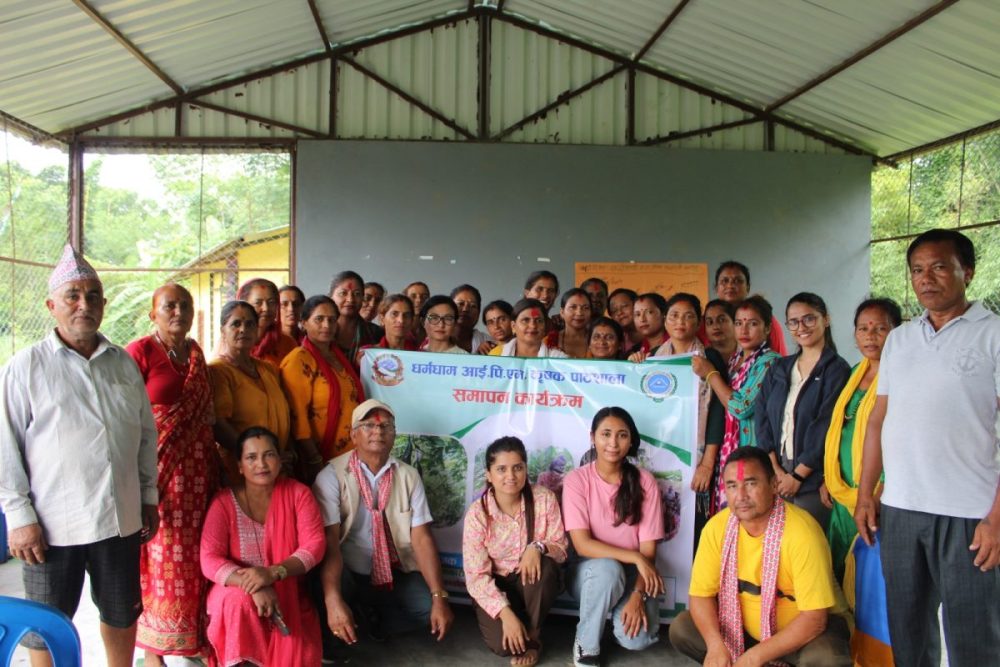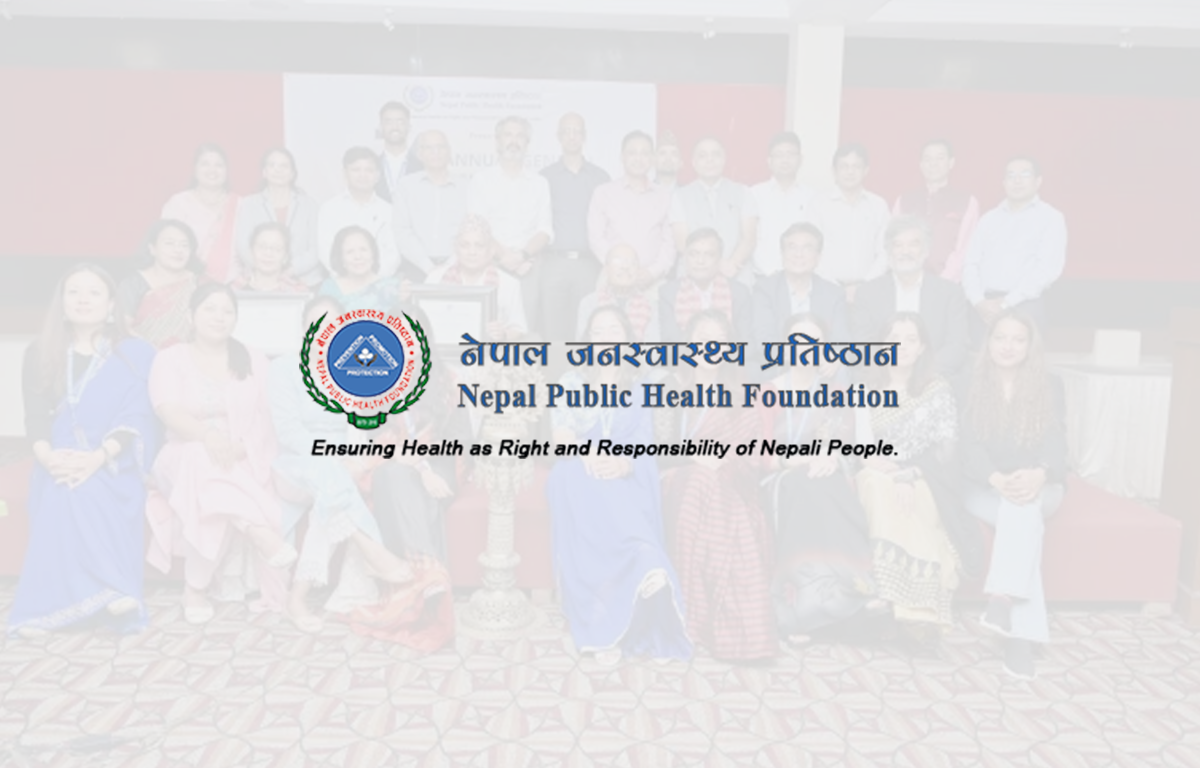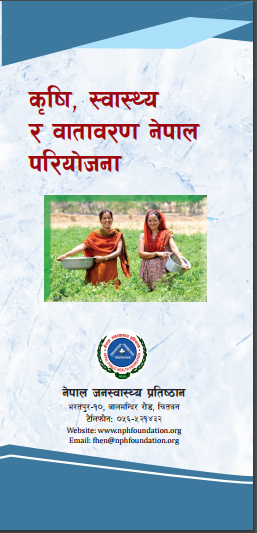In recent years, there has been a growing recognition of the effectiveness and sustainability of Integrated Pest Management (IPM) Farmer Field Schools (FFS) as a key approach to agricultural practices. These programs are designed to equip farmers with the knowledge and skills necessary to effectively manage pests, diseases, and other challenges in agriculture, while promoting environmentally friendly and economically viable methods. By placing farmers at the core of decision-making processes, IPM FFS encourages active participation, observation, experimentation, and collaborative learning.The core principle of IPM FFS is to integrate various pest management techniques, including biological control, cultural practices, and targeted pesticide use. This comprehensive approach allows IPM FFS farmers to develop a deep understanding of pest dynamics and implement sustainable solutions that reduce reliance on chemical inputs. By adopting these practices, farmers can mitigate the adverse environmental impact associated with conventional pest management methods.
Follow up was carried out at Ratnanagar municipality-11 to evaluate the impact of IPM FFS training on farmers’ practices, production outcomes, and livelihoods. This information allows us to assess the level of adoption of IPM practices, reductions in chemical inputs, improvements in crop yields and quality, and the empowerment of farmers as knowledge-sharing agents within their communities.This report provides a comprehensive overview of follow-up activities conducted with trained IPM FFS farmers, assessing their achievements, challenges, and the continuation or discontinuation of IPM practices.
METHODOLOGY
IPM Facilitator: Lekhnath Pokharel actively engaged farmers through interactive sessions, encouraging them to share their experiences, ask questions, and participate in group discussions. This participatory approach fostered exchange of experience and knowledge and collective learning among the farmers.
Resource person: Prabin Lama, an Agriculture officer from the Ratnanagar municipality, played a crucial role in providing technical advice and assistance to the farmers.
Key Findings:
Karuna Poudel:
- She recognized the importance of reducing reliance on chemical inputs and the benefits of using biopesticides.
- She is successfully preparing and using biopesticides in her kitchen garden.
- She faced challenges in scaling up the use of biopesticides for her commercial farm.
- Support and guidance are needed to help farmers to overcome obstacles in implementing sustainable pest management practices on a larger scale.
Shyam Sundar Bastola
- He had trouble using biopesticides effectively on his large commercial farm.
- He is using green-labeled pesticides and selected pesticides based on the specific type of insects and the nature of the damage.
- In his small-scale farm, he successfully controlled aphids by using chili powder solution.
- Recognizing the limitations of relying on others for cattle urine, he is taking proactive measures by developing his own cattle shed to rear cattle, ensuring a consistent source of cattle urine for biopesticide production and enabling him to utilize both biopesticides and chemical pesticides on his commercial farm.
Deepa Bastola
- She emphasizes the importance of carefully reading and understanding the label instructions of pesticides before use.
- She acknowledges the significance of personal protective equipment (PPE) and ensures its proper use while spraying pesticides, prioritizing her safety and minimizing exposure risks.
- She diligently follows the recommended waiting period between pesticide application and harvest to ensure compliance with safety regulations and minimize potential residue risks.
- Previously, she used to spray pesticides frequently without considering the specific requirements, but after receiving training, she now adjusts the frequency and type of pesticide application based on the nature of the disease and its specific requirements.
- To monitor and manage pests effectively, she utilizes traps and lures in her farm, employing these techniques as part of her integrated pest management strategy.
Mathura Gajurel
- She shared her experience of finding it easier to cook tomatoes that were produced using biopesticides compared to those grown with chemical pesticides.
Kumar Prasad Subedi
- He expressed the viewpoint that IPM FFS programs should not only focus on farmers but also consider market-oriented approaches.
- He emphasized the importance of aligning IPM practices with market demands and preferences. By incorporating market orientation, farmers can better understand the specific requirements and quality standards expected by consumers and buyers. This approach enables farmers to produce crops that are not only pest-resistant but also meet market expectations in terms of quality, appearance, and sustainability.
- He shared his experience of successfully growing bottle gourds, pumpkins, and a local variety of sponge gourd without the use of chemical pesticides.
Technical advice
Agriculture Officer, Prabin Lama of Ratnanagar Municipality provided technical advice related to IPM FFS
- Diversify pest management approaches:Encouraged the farmers for integrated pest management (IPM) practices that combine multiple techniques such as biological control, cultural practices, and judicious pesticide use. This approach can help minimize reliance on chemical pesticides and promote sustainable pest management.
- Conduct crop-specific pest assessments: Encouraged farmers to conduct regular pest assessments to identify the specific pests affecting their crops. This will enable them to implement targeted pest control measures and select appropriate pest management strategies tailored to the specific crop and pest dynamics.
- Promote market-oriented production: Emphasize the importance of considering market demands and preferences when selecting crops and implementing pest management practices. Encourage farmers to align their production with market requirements, including quality standards, sustainability certifications, and consumer preferences.
- Foster knowledge exchange and peer learning: Develop platforms by farmers themselves to share their experiences, challenges, and successful practices with their peers. Encourage learning from one another and foster a culture of continuous improvement and innovation in pest management strategies.
- Emphasized the importance of using personal protective equipment (PPE) while handling and spraying pesticides to ensure their safety and minimize health risks.
He also shared that municipality is currently developing a mobile application to identify, pest disease and recommend management practices by clicking plant pictures.
CONCLUSION
Participants’ experiences emphasize the benefits of resilient crop varieties and market-driven decision-making. Challenges in implementing IPM on commercial farms are apparent. Knowledge exchange, peer learning, and ongoing research are vital for innovation in pest management. Integrating these insights into IPM FFS programs enhance farmers’ pest management abilities, reduces environmental impact, meets market demands, and promotes sustainable and profitable agriculture.
Farming, Health and Environment Project
Phase III
Nepal Public Health Foundation
25th May 2023






